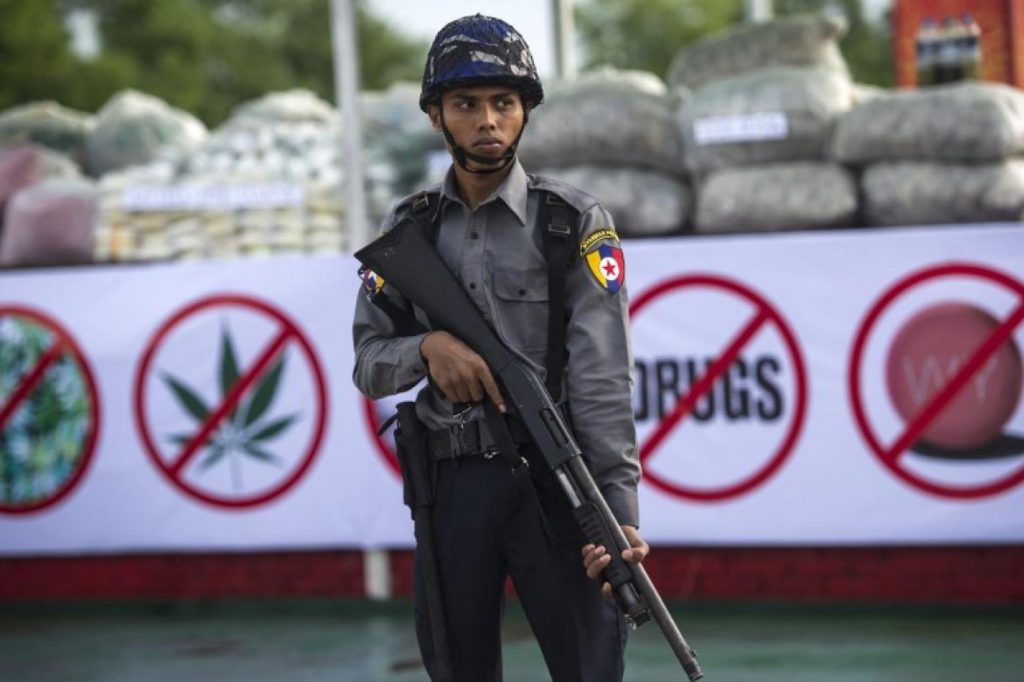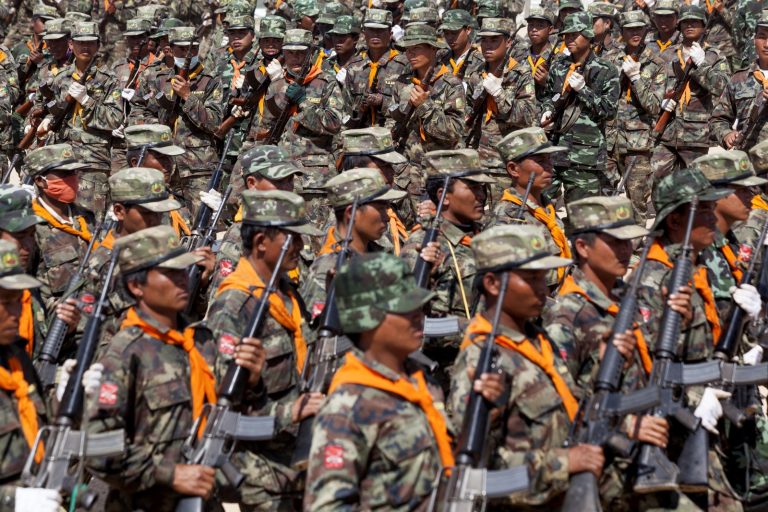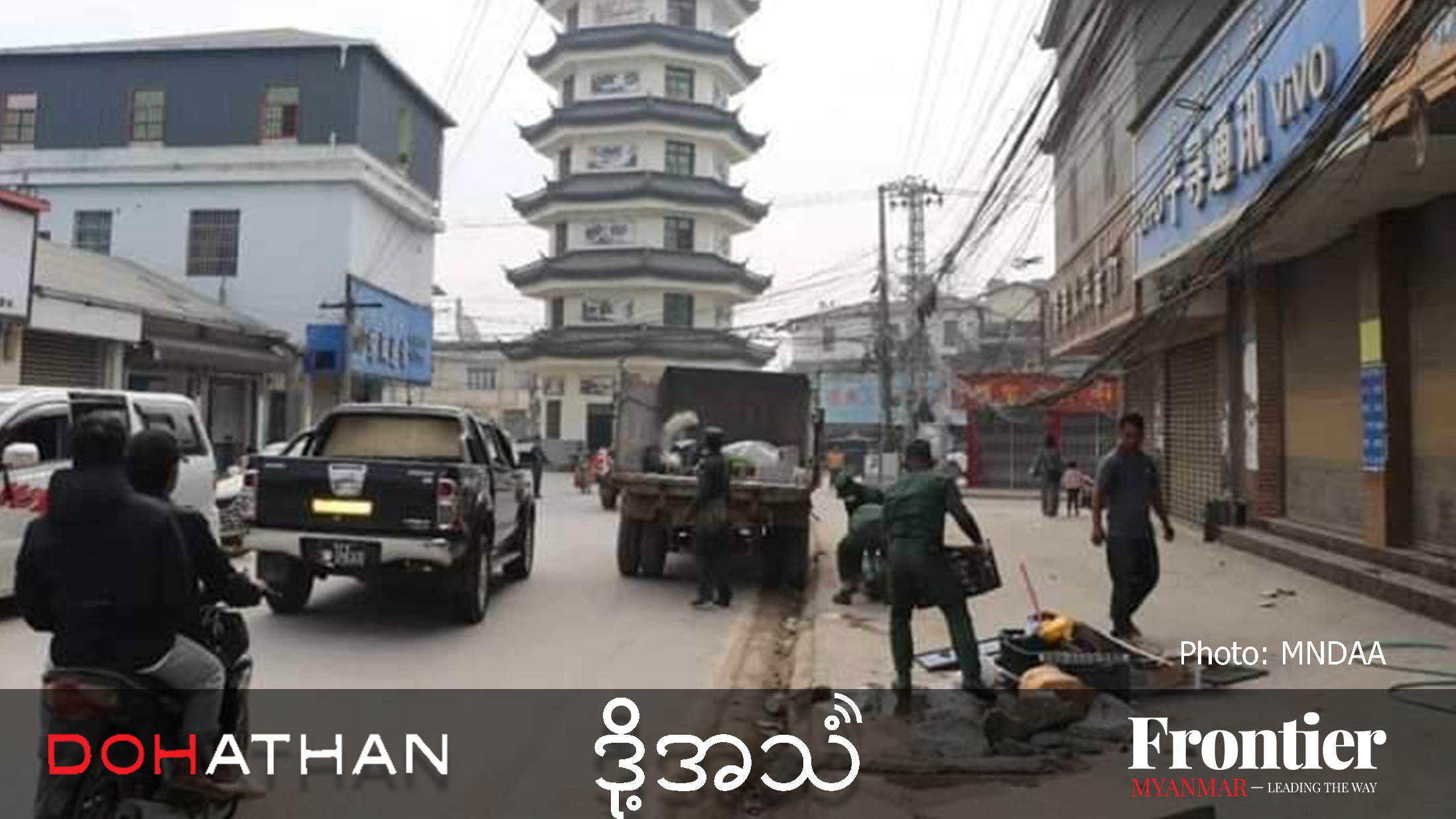By FRONTIER
YANGON — Illicit drug production in Shan State has become so large and profitable that it dwarfs the area’s formal economy and is hindering efforts to end ethnic conflicts, warns International Crisis Group.
In a report that focuses heavily on Shan State’s emergence as a global production centre of crystal methamphetamine, or “ice”, ICG says the drugs trade is both partly a symptom of the state’s conflicts and an obstacle to sustainably ending them.
It says “good infrastructure, proximity to precursor supplies from China and safe haven provided by pro-government militias and in rebel-held enclaves” had enabled the state to become a major global source of high purity crystal meth.
The 36-page report, Fire and Ice: Conflict and Drugs in Myanmar’s Shan State, was released by the Brussels-based think tank on January 8.
Support more independent journalism like this. Sign up to be a Frontier member.
It says the drug trade in Shan State is at the centre of its political economy, which “greatly complicates efforts to resolve the area’s ethnic conflicts and undermines the prospects for better governance and inclusive economic growth in the state”.
The drug trade in Shan State generates revenues for armed groups of all stripes, including militias aligned with the Tatmadaw.
“Myanmar’s military, which has ultimate authority over militias and paramilitaries and profits from their activities, can only justify the existence of such groups in the context of the broader ethnic conflict of the state – so the military also has less incentive to end that conflict,” the report says.
It says drug production in Shan State has had three main phases: opium and heroin from the 1950s to 1990s (when Myanmar was the largest opium producer before it was replaced by Afghanistan), followed by methamphetamines, also known as yaba, and then highly-addictive crystal meth since the early 2010s.
Gram-for-gram, crystal meth is worth more than heroin, and the total value of the Mekong drug trade is estimated at more than US$40 billion a year, and rising, the report says.
The amounts produced at illicit laboratories are huge and have resulted in massive seizures, it says. They include Myanmar’s largest drug bust in northern Shan State’s Kutkai Township in January 2018, which resulted in the seizure of 30 million yaba pills, 1,750 kilogrammes of crystal meth, more than 500kg of heroin and 200kg of caffeine powder. The authorities valued the haul at $54 million.
Other seizures within the Asia-Pacific region of crystal meth, most of which was believed to have originated in Shan State, have included 1.2 tonnes seized in Australia in December 2017, 1.6 tonnes in Indonesia in February 2018, and 1.2 tonnes in Malaysia last May.
ICG said big seizures tend to be presented as interdiction victories.
“However, these record seizures represent the tip of an iceberg, and are therefore evidence of the scale of the problem rather than of any genuine success in addressing it. Despite massive seizures, prices of crystal meth have remained stable, a clear indication that they are a small proportion of total volumes,” the report says.
It says yaba is produced for domestic consumption and export, and although crystal meth is mainly produced for foreign markets, it is starting to become more widely available in Myanmar.
ICG says illicit drug production and trafficking in Shan State is a complex policy challenge involving security, law enforcement, public health and politics.
It recommends that the government should redouble its drug control and anti-corruption efforts and focus on major players in the drug trade.
“Education and harm reduction should replace criminal penalties for low level offenders,” it says.
It also urges the Tatmadaw to reform – and ultimately disband — militias and other pro-government paramilitary forces and pursue a comprehensive peace settlement for Shan State.







